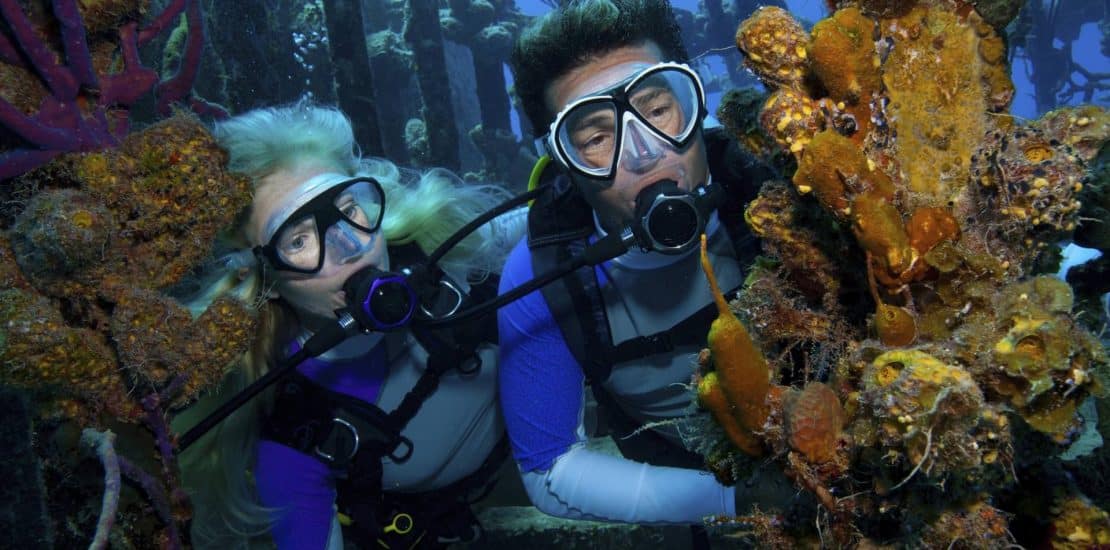- July 14, 2018
- Posted by: A-1 Scuba Diving And Snorkeling Adventures
- Category: Blog

Are you wondering what equipment you need to buy to start scuba diving? Surprisingly, the answer is none! There are many scuba divers that use rental equipment for their first few dives before actually buying their own. However, there is an advantage to training in the scuba equipment that you will use once you are certified. The following list of gear is arranged in suggested order of purchase.
Diving Mask
If you can only afford to buy one piece of diving gear, buy a mask. A high quality scuba diving mask that is comfortable and fits your face well can make the difference between pleasurable dives and a horrible time underwater. Take your time when selecting a mask and do not forget to bring the mask with you on your dive trips. Rental masks will get the job done, but having your own mask will make a significant difference in your comfort when diving.
Fins
Many divers find that owning their own set of fins makes them feel more confident when diving. Rental fins come in so many varieties of lengths and styles that it is difficult to predict exactly what you will get. This is particularly true for divers with unusual fin sizes.
Dive Computer
I highly recommend divers purchasing a dive computer early on in their diving career. Dive computers help to diminish the risk of decompression sickness. You can writing a custom dive profile for the dive as you moves through the water. Following another person’s dive computer is never a good idea, as the dive computers are very sensitive and even small differences in divers’ underwater profiles can change their no-decompression limits. You really need you own dive computer.
Wetsuit/Drysuit
When wearing a wetsuit, you will get wet. When wearing a drysuit, you will stay dry. Usually you will want to go with the drysuit if you want to be diving in cold water. To keep a diver warm, a wetsuit or drysuit has to fit you properly. If you are of an average size, most dive shops will have a suit that will fit you well, however nothing beats the comfort of having your own. When renting a wetsuit, many divers find that diving makes them need to urinate, which raises some considerations. First, you might not want to dive in a wetsuit that other people have peed in. Second, you may want to be able to pee underwater, and doing so in a rental suit is not the most polite behavior in the world.
Regulators
Regulators connect from your mouth to your air tank, allowing you to breath underwater. They are an expensive purchase. Many divers choose to rent regulators as opposed to purchasing their own. Modern regulators are very reliable, and most dive centers will have a stock of well-maintained rental regulators for their divers to use. When purchasing your own regulators, take your time and do the research. With proper maintenance, a good set of regulators should last your entire diving career.
Buoyancy Compensators
Buoyancy compensators (also known as BCs) are bulky and can be rather expensive. For this reason, many divers travel with most all of their own gear, but then decide to rent BCs to avoid the extra bulk and weight they have to carry around. Renting and diving with a variety of different BCs before buying one will allow you to test out different features and styles. Doing this will help you figure out which is best for you when it comes time to buy your own. You will eventually want to own your own. Your dives will be more comfortable with your own BC.
So that wraps up our lineup of diving equipment you need to go scuba diving. From diving masks, to fins, to wetsuits, having the proper diving equipment can make the difference between an awkward dive and a dive that will be enjoyable and comfortable.











